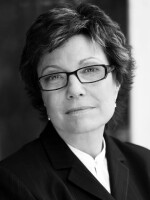Saudi Arabia's King Abdullah promised $35 billion in benefits to Saudi citizens as he returned to the kingdom Wednesday after three months of medical treatments for back problems.
The 87-year-old monarch said the new social programs are a gift to address major economic issues: housing, unemployment and government pay.
But Saudis have been inspired by the changes in Egypt, Tunisia and now in neighboring Bahrain. More than ever before, they are demanding political reform in the kingdom.
In the town of Qatif, in Saudi Arabia's Eastern province, a weekly meeting known as the "Tuesday Cultural Forum" became a political town hall. Jafar Al-Shayeb, the elected chairman of the municipal council in Qatif, hosts the meetings at his home. This was the first time the forum was held since the political uprising in Bahrain, which is less than a hour's drive away.
"Something new in Bahrain that's taking place — they keep talking about it, I mean, in these meetings and outside the meetings," Shayeb says.
Many families in Qatif have relatives in Bahrain, where the Shiite majority is challenging the Sunni royal family. Most of Saudi Arabia's Shiites — a minority — live here in the Eastern province. For them, Bahrain has been an inspiration.
"If you don't demand anything, you will not get anything — this is how the system work here," says Matheim Al-Jishi, 30, a recent U.S. university graduate. "I have two kids. I want to assure that they have a good future, not [like] my present. We want more."
The forum is unusually crowded, and a Saudi television crew records the event. The debate is fiercely political. One man says the problems here are the same as in Egypt and Tunisia. Another says they must demand their rights immediately.
In the Eastern province, Shiite grievances have centered on religious freedoms, inclusion in Saudi society, equality in getting jobs — but this debate has national themes, says Yousif Makki, a writer and political activist.
"We expect change everywhere," he says. That includes Saudi Arabia, "if you ignore the rights of people. We don't know. Who knows? Real change is required to recognize that democracy is not a Western demand. It is a universal one."
So far, political reforms have not been on the Saudi agenda. Instead, King Abdullah offered an economic package. It is an approach taken across the rich Gulf states in the past few weeks as a way to soften the demand for political change.
That might have been enough a few months ago, says political scientist Tawfiq Alsaif, but not anymore.
"It is because of Egypt — the change in the self, the inside of the people," he says. "Egypt has the widest impact on Saudi Arabia, on the people of Saudi Arabia."
Some of those changes were apparent at the forum: Sunni political activists took part in a debate organized by Shiite reformers. That is relatively new, Alsaif says, because there has been deep mistrust between the two communities. The issue was openly discussed during the debate.
"If we demand our rights, can we be united, or will every sect and tribe go alone? This is a big concern," Alsaif says. "Raising the question is itself a way of solving, a way of taking down this problem."
Saudis from across the country have joined together in Facebook groups. A site calling for political reform gained 7,000 members in the past two weeks. And the members used their names.
"It is amazing, really amazing," Alsaif says, "because I used to see Saudis fearing to talk in politics and saying their names. But all of them think of one thing — that's going over the barriers, the historical barriers, for political reform. Everyone in Saudi Arabia think of this."
This is especially true among Saudi Arabia's young generation.
Duraa Ali, a 22-year-old journalism student dressed in a full abaya and face veil, asked at the forum if a woman could start a revolution in Saudi Arabia. Women are the ones with the least rights, she said to applause in the room.
Ali was studying in Bahrain when the protests began there. She was thrilled by the demands of Shiite protesters who challenged the Sunni royal family — and disturbed by the violent reaction to those demands.
"Bahrain is similar to us here in Qatif, specially — we have even families there. We are concerned," she says.
Ali says she wants the same things the protesters in Bahrain want. "Honestly, yes. But like Egypt ... I don't know the English word."
Peaceful? "Yep, peaceful, that's it," she says.
Saudis are unlikely to march in the streets, but the political passions here seem as strong as anywhere in the Arab world.
Copyright 2022 NPR. To see more, visit https://www.npr.org. 9(MDAzMjM2NDYzMDEyMzc1Njk5NjAxNzY3OQ001))







